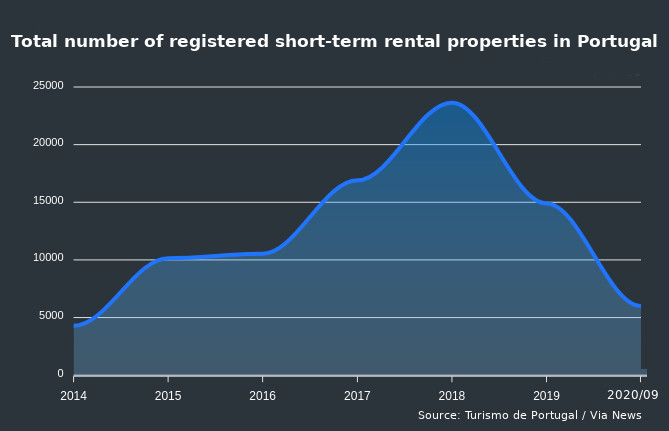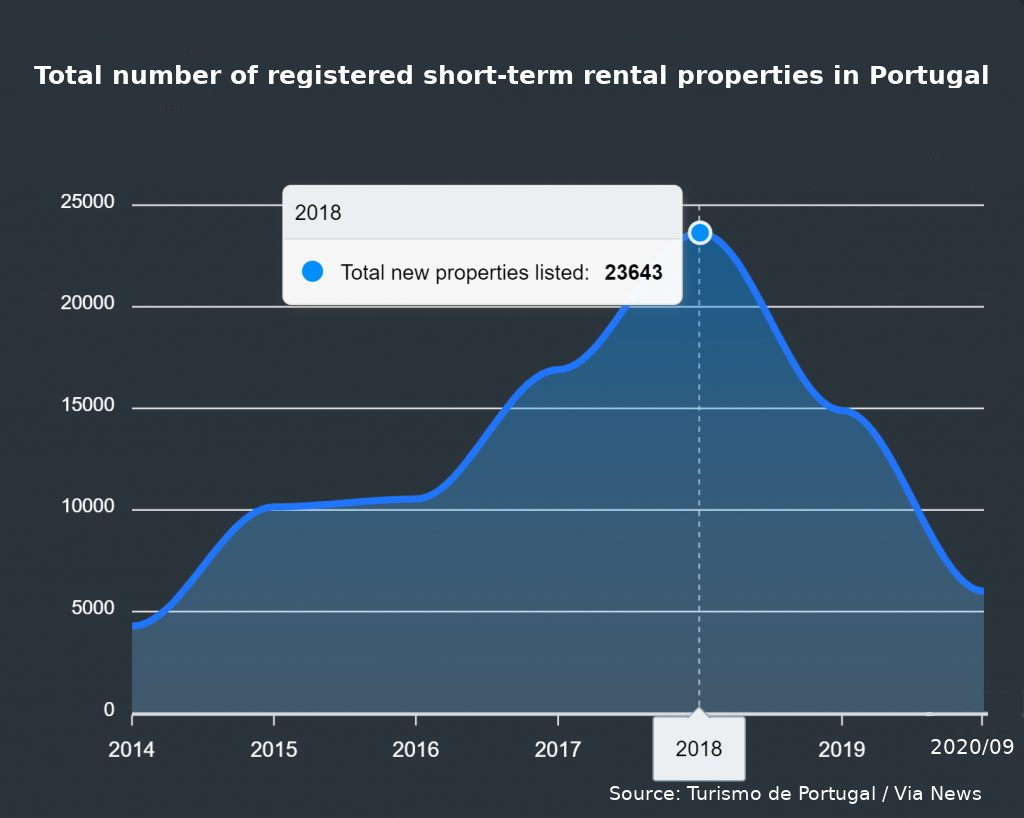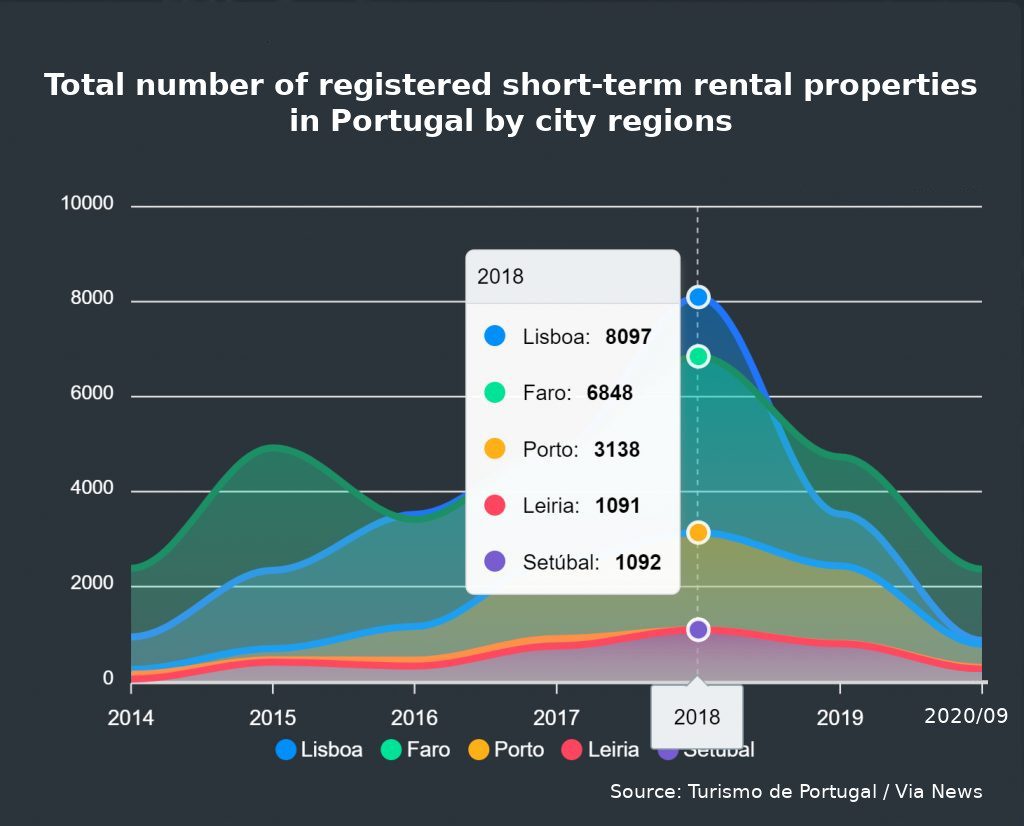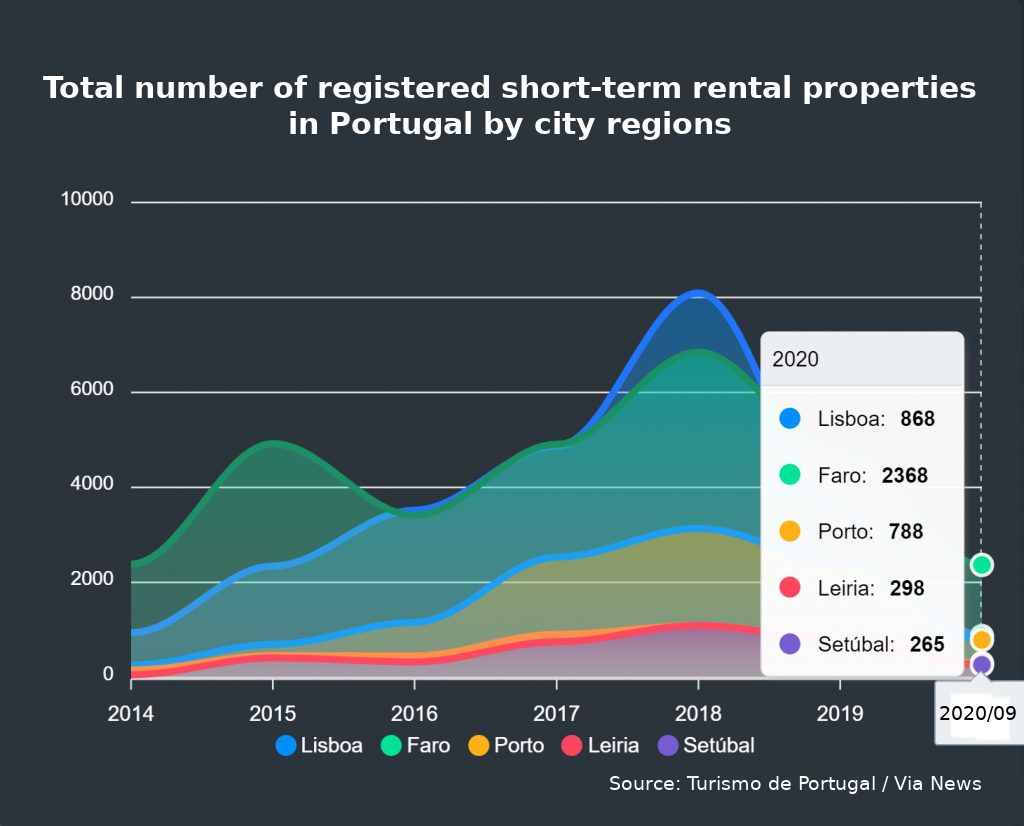The number of new listings coming onto the short-term rental market in Portugal has plunged as lockdowns to curb the spread of the coronavirus paralyzed the sector.
Only 6,000 new properties have been listed across the country this year so far—the lowest figure since 2015, according to exclusive statistics provided to Via News.

Out of the 6,000 new listings, 868 properties were listed in Lisbon, 2,368 in Faro, 788 in Porto, 298 in Leiria, and 265 in Setubal.
For comparison, 10,151 short-term rentals were posted in 2015, including 2,343 in Lisbon, 4,922 in Faro, 694 in Porto, 459 in Leiria, and 409 in Setubal.
In 2016 and 2017, 10,543 and 16,906 properties entered the market, respectively. The number of new listings reached a record of 23,643 in 2018, before dropping to 14,905 in 2019.

Faro and Lisbon have hosted the highest number of short-term rental accommodations over the past six years.
Read more: Analysis of Portugal’s Short-Term Rental Market Pre- and Post-Coronavirus
Huge Dent
The sharp decline in 2020 shows the extent of the damage caused by the unprecedented pandemic to the short-term vacation rental industry.
The lower number of new unit listings can be attributed to the fact that many hosts decided not to move their properties into the short-term rental market after the outbreak took hold, leaving an uncertain future for the hospitality sector.
On October 14, a renewed state of “calamity” was declared in Portugal as the government tries to stop the worsening of the situation.
Public gatherings have been limited to five people as confirmed cases surge well beyond the first wave, with 2,072 on the day of the announcement alone. It was the first change to restrictions since September 15.
Based on the data released by the Johns Hopkins University on October 20, Portugal has so far recorded 103,736 confirmed cases of the coronavirus as well as 2,213 deaths.
In light of the “second wave” of the pandemic, it is expected that more owners will be seeking long-term renters in hopes to make up for lost revenue as a result of the temporary loss of demand for short-term stays.
Future Prospects
No one can see into the future, especially in this period of uncertainty. However, despite all the headwinds in the market, some experts and industry reports predict that the industry will get back on its feet sooner than expected.
In a post on the blog of Granicus, Ulrik Binzer, founder of Host Compliance—which is now part of the American technology company—cites several reasons that support this argument.
He argues that a large number of short-term rentals are not full-time rentals and were never intended to be.
“For these hosts, short-term rental income is mainly supplemental. There’s no reason for them to remove their listings.”

As for professional short-term rental operators, Binzer says it is neither practical nor feasible for them to pivot and quickly move their properties into the long-term rental market as they still have bookings for the fall.
“Additionally, converting short-term rentals into traditional annual leases isn’t practical or cost-effective since it can require the owner to remove furniture to make room for a potential tenant’s personal belongings,” reads the article.
Read more: Short-Term Rentals Outperforming Hotels in Pandemic Era
Binzer said there are widespread reports of some owners shifting to a long-term strategy but believes there is not enough immediate long-term rental demand to absorb the sudden glut of available short-term rentals.
According to him, the primary reason is that service industry workers, who make up a large percentage of possible long-term tenants, have lost their jobs in many vacation rental destinations.

Binzer predicts that the economic fallout from the COVID-19 crisis will likely increase the total number of short-term rentals in the medium to long term.
“As casual short-term rental hosts lose their jobs or face salary cuts, they may increasingly turn to supplementing or substituting their income by renting out extra space wherever it may be found,” the entrepreneur noted.
Only time will determine the future status of the short-term rental market in Portugal. Especially now that Fernando Medina, the mayor of Lisbon, has mooted a proposal to turn Airbnb-style rentals into homes for key workers to bring "lifeblood" back to the city center.

